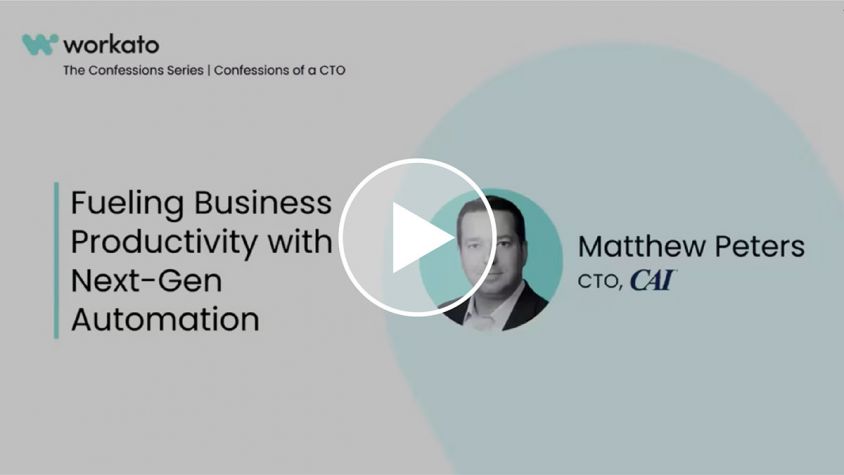Harnessing the potential of AI in staffing and consulting
Businesses within the consulting and staffing industries are experiencing a seismic shift, driven by the rapid adoption of artificial intelligence (AI). Once reliant on labor-arbitrage models and traditional workflows, these industries are embracing the advanced power of AI to drive efficiency and innovation.
By deploying AI-powered systems, these organizations can enhance productivity, reshape workforce dynamics, and unlock entirely new revenue streams. Beyond efficiency gains, AI is fundamentally altering the way firms operate—from automating routine research and analysis to enabling real-time data interpretation—and challenging executives to rethink their strategies and adapt to a future where technology and human expertise coexist in unprecedented ways.
Integrating AI into consulting and staffing is not just incremental, it is transformative. Leading firms like BCG and Accenture have demonstrated the potential of AI to drive substantial growth, with BCG’s AI-related services generating $2.7 billion in revenue within 2 years.1 These changes highlight the urgency for firms to invest in proprietary AI platforms, forge strategic partnerships with technology providers, and develop niche AI solutions tailored to specific industries.
As firms navigate this transformation, the challenge lies in balancing innovation with ethical and transparent use of AI. This ensures that technology serves as an enabler of human ingenuity rather than a replacement.
AI in staffing brings new business models and workforce dynamics
At the heart of AI’s impact is a profound evolution of business models. The traditional pyramid structure, where large teams of junior staff carry out routine tasks, is giving way to a diamond-shaped model emphasizing mid-level AI specialists and senior advisors. AI’s ability to automate research, data analysis, and even slide generation, has reduced the demand for entry-level staff while elevating roles that require experience, judgment, and strategic thinking. This shift is not only redefining career progression but also challenging firms to rethink hiring practices and reskilling initiatives.
The productivity gains are equally striking. Consultants using AI tools can complete tasks 25% faster and with 40% higher quality, reducing research and analysis time by up to 50%. In software development, AI enables a 95% reduction in timelines for certain modules, with significantly fewer bugs.2 These gains have prompted firms to explore new pricing models, such as outcome-based or subscription-like contracts, which align costs with the value delivered to clients.
Workforce transformation is another critical area where AI is leaving an indelible mark. Companies like Wipro and EY have invested heavily in upskilling their employees, with training programs that span fundamental AI principles to advanced ethical considerations.3 This emphasis on adaptability and hybrid skill sets is reshaping the talent pool, as firms prioritize candidates with technical expertise alongside traditional consulting skills. The emergence of roles like “AI orchestrators” and “data ethicists” underscores the need for specialized knowledge to navigate the complexities of AI integration.
The firms that succeed will be those that approach AI in staffing not as a replacement but as a collaborator, redefining what it means to lead in the consulting and staffing industries.
Actionable steps for executives to utilize AI in consulting and staffing
For executives in consulting and staffing, the imperative is clear: embrace AI not as a tool, but as a strategic partner to transform their organizations. The first step is to invest decisively in AI capabilities. Developing proprietary platforms that embed firm-specific knowledge and methodologies creates a competitive moat, offering protection against commoditization by generic AI tools. Strategic partnerships with technology leaders like Microsoft and Nvidia can further enhance access to cutting-edge solutions, while acquisitions of niche AI startups provide opportunities to onboard specialized expertise.
Workforce reskilling should also be a top priority. Comprehensive AI-driven staffing training programs (tailored to different roles) can bridge skill gaps and foster a culture of collaboration. Redefining career paths to enable faster progression for junior staff, supported by AI tools, ensures that human expertise remains central to client engagements. At the same time, firms must create new roles that address the unique challenges and opportunities posed by AI, such as ensuring ethical use and maximizing the value of AI outputs.
Business models must also evolve to reflect the realities of an AI-driven marketplace. Experimenting with outcome-based pricing models allows firms to align compensation with delivered value, building trust with clients while mitigating risks. Hybrid service offerings that combine consulting expertise with AI-driven staffing and analytics platforms can create new revenue streams, positioning firms as leaders in innovation. Restructuring project teams to integrate AI as a core member enables human consultants to focus on higher-value activities, such as creative problem-solving and strategic interpretation.
Finally, differentiation is key to avoiding commoditization. Firms must articulate their unique value proposition beyond what clients can achieve with off-the-shelf AI tools. Investing in industry-specific AI solutions and emphasizing “trusted AI” principles—transparency, fairness, and bias mitigation—can set firms apart in highly regulated sectors. Strengthening human-centric skills, such as emotional intelligence and complex problem-solving, further ensures that AI enhances rather than replaces the human touch.
Imagining the future of AI in consulting and staffing
The adoption of AI in staffing and consulting industries is not just a technological shift—it is a reimagining of how these industries operate, deliver value, and engage with clients. As AI continues to reshape the business landscape, the opportunity lies in leveraging its potential to amplify human expertise and drive innovation. From flattening traditional workforce structures to enabling innovative service offerings, AI is both a disruptor and an enabler of growth.
The firms that succeed will be those that approach AI in staffing not as a replacement but as a collaborator, redefining what it means to lead in the consulting and staffing industries. Executives who embrace AI as a strategic partner, investing in capabilities, reskilling their workforce, evolving business models, and differentiating their services, will position their firms not just to adapt, but thrive in this new era.
To learn more about how CAI can help your organization navigate the potential of AI, fill out the form below.
Endnotes
- Anjli Raval, Simon Foy. “BCG says AI consulting will supply 20% of revenues this year.” Financial Times. April 23, 2024. https://www.ft.com/content/33dfaec4-b5e7-4eca-a869-cdd33d447e65?accessToken=zwAGFr-7U0DAkc8z367EtedOytOoac3TPUR-ZQ.MEUCIQCr4XDEPue3Zw1VXpuaPUG6RR-I80M2S_-i7lU2UrzEHQIgdsl3vXQ2gnxTTR3Cr9g6V24Y6p920t7e01QJHCSqg5s&sharetype=gift&token=82dcb6fa-fcb5-4930-812. ↩
- Fabrizio Dell’Acqua, Edward McFowland III, Ethan Mollick, Hila Lifshitz-Assaf, Katherine C. Kellogg, Saran Rajendran, Lisa Krayer, François Candelon, Karim R. Lakhani. “Navigating the Jagged Technological Frontier: Field Experimental Evidence of the Effects of AI on Knowledge Worker Productivity and Quality.” Harvard Business School. 2023. https://www.hbs.edu/faculty/Pages/item.aspx?num=64700. ↩
- “Wipro Launches Wipro ai360, Commits to Investing $1 Billion in AI Over the Next Three Years.” Wipro. July 12, 2023. https://www.wipro.com/newsroom/press-releases/2023/wipro-launches-wipro-ai360-commits-to-investing-1-billion-in-ai-over-the-next-three-years/. ↩




